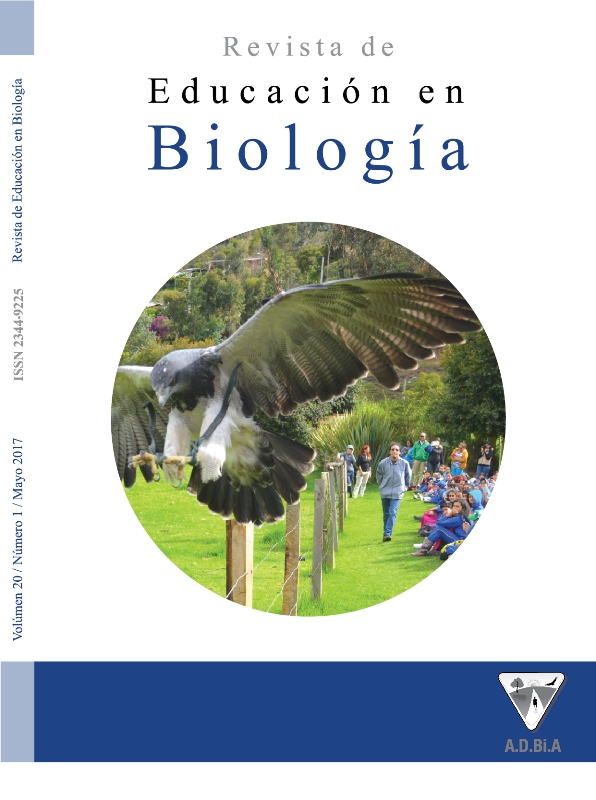Analysis of Written Hypotheses in Problem Solving in Educational Research Sequences
Main Article Content
Abstract
Among the stages involved in solving a problem, we focus on the moment ofdeveloping hypotheses, since those activities that consider the creation of hypothesesby students also contribute to learning the nature of science and to the construction ofknowledge. Within a school context, hypotheses take on an important pedagogical role inthe construction of school scientific knowledge. Thus, the objective of this study was toanalyze students’ written hypotheses during the resolution of ecology problems developedin three educational sequences. The characteristics of hypotheses mobilize different skillsin students, and they also indicate that considering them means going beyond the simpleaction of complying with the elements of deductive hypothetical reasoning.
Article Details
How to Cite
Nunes, T. da S., & Motokane, M. T. (2017). Analysis of Written Hypotheses in Problem Solving in Educational Research Sequences. Journal of Biology Education, 20(1), (pp. 72-86). https://doi.org/10.59524/2344-9225.v20.n1.22498
Section
Investigaciones y desarrollos

This work is licensed under a Creative Commons Attribution-NonCommercial-ShareAlike 4.0 International License.
Aquellos autores/as que tengan publicaciones con esta revista, aceptan los términos siguientes:- Los autores/as conservarán sus derechos de autor y garantizarán a la revista el derecho de primera publicación de su obra, el cuál estará simultáneamente sujeto a la Licencia de reconocimiento de Creative Commons que no se permite un uso comercial de la obra original ni de las posibles obras derivadas, la distribución de las cuales se debe hacer con una licencia igual a la que regula la obra original.
- Los autores/as podrán adoptar otros acuerdos de licencia no exclusiva de distribución de la versión de la obra publicada (p. ej.: depositarla en un archivo telemático institucional o publicarla en un volumen monográfico) siempre que se indique la publicación inicial en esta revista.
- Se recomienda a los autores/as difundir su obra a través de Internet (p. ej.: en archivos telemáticos institucionales o en su página web) después del proceso de publicación, lo cual puede producir intercambios interesantes y aumentar las citas de la obra publicada. (Véase El efecto del acceso abierto).
How to Cite
Nunes, T. da S., & Motokane, M. T. (2017). Analysis of Written Hypotheses in Problem Solving in Educational Research Sequences. Journal of Biology Education, 20(1), (pp. 72-86). https://doi.org/10.59524/2344-9225.v20.n1.22498

